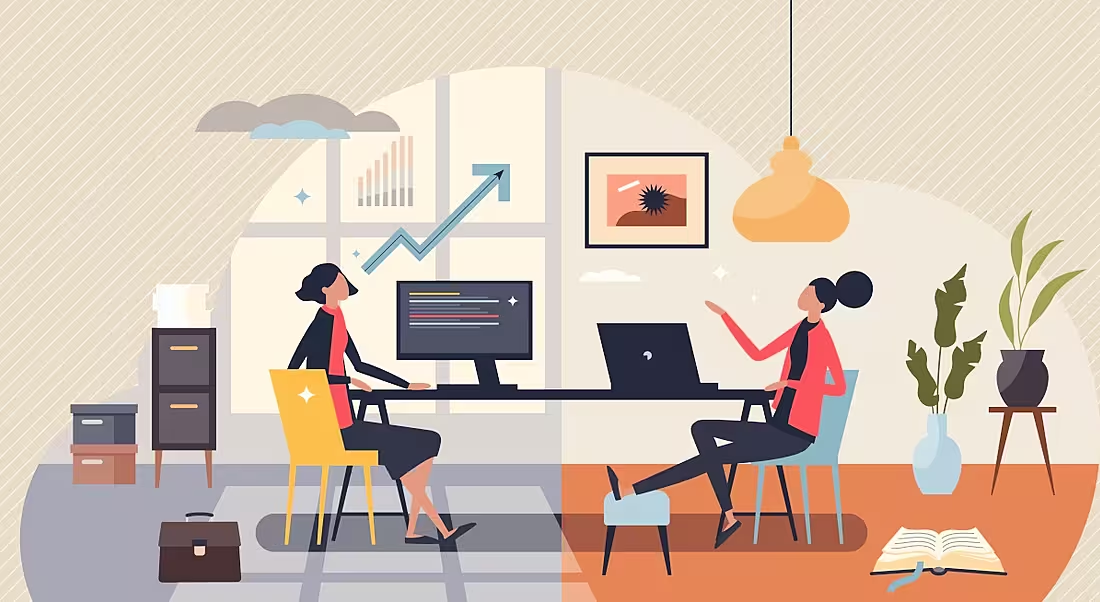Aaron Gibson discusses the importance of trust when establishing a new workplace schedule and how the standard models may be in need of some modernisation.
For the vast majority of people, working from home or on a flexible schedule has been beneficial to their work-life balance. By empowering the individual to cut out commutes, work from where they are most comfortable and in some cases set their own hours, work, while still a priority, no longer consumes as much time or energy.
Flexi-models, that is, working schedules that are determined by the employee, while demanding a great deal of trust and planning, can mentally and physically bolster the workforce, create a culture that is focused on wellbeing, improve creativity and even reduce instances of absenteeism or presenteeism, yet still there remains a loyalty to traditional systems.
Like all working structures, there are downsides to introducing a new model. For example, employers may worry that less supervision will result in time wasting, or that teams may become siloed and uncommunicative, leading to mistakes. However, the argument can be made that a flexi schedule, as with all forms of internal company infrastructure, simply requires a strategy and organisation-wide commitment.
Aaron Gibson, the CEO of data analytics and AI platform Hurree, is one such entrepreneur who has implemented a full-time flexi schedule for his organisation. A believer that all too often people fall into the trap of thinking too rigidly, he found that once the decision was made, everything rapidly fell into place.
“It wasn’t just about talking the talk anymore,” he told SiliconRepublic.com. “We had to walk the walk and go the extra mile to ensure people felt valued. Surprisingly, the changes we implemented didn’t break the bank and weren’t particularly difficult to put in place.”
Trial and error
Starting in the summer as a trial, Gibson’s organisation made the Friday schedule more flexible, enabling employees to enjoy the good weather, basing the entire system on trust and a respect for your fellow co-workers.
“Instead of using a traditional clock-in, clock-out system, we opted for a model where if one person messed up, the entire system would be at risk. I’ll be honest – at the start, we were sceptical. We truly believed that at some point, we’d have to implement more rigid rules.
“However, what we discovered was surprising. We had inadvertently removed any sense of competitiveness or comparisons among team members. Everyone became more considerate of others’ time off and significantly improved their forward planning. The team really pulled together because they could all reap the benefits.”
By monitoring productivity, making use of a company-wide calendar and ensuring management were aware of the hours their teams were putting in, Gibson noted, the system ran like clockwork and despite expecting a slip-up, it never came. Rather, employees became more invested in their work, took part in scheduled meetings and rectified issues if and when they arose.
“We have essentially introduced complete flexibility, which I definitely thought would have created some issues, but the benefits we have seen so far have really surprised us. We have seen a huge increase in collaboration across departments. We actually think productivity has increased because people are now more forward thinking, planning ahead and because they know when others are off, they tend to complete things ahead of time,” he said.
Creating a culture of wellbeing
More and more we are seeing organisations prioritise culture initiatives that give employees a better work-life balance and contribute to a workforce that does not view mental or physical health issues as a taboo topic. By allowing employees the freedom to structure their working day around other aspects of their lives, employers can reduce stigma and promote a working culture that is diverse, inclusive and considerate of others.
“I think it’s really important to be open from a mental health perspective,” explained Gibson.
“Introducing an entirely flexible working model allows people to schedule in their favourite gym class or go for their lunchtime walks, which is especially important coming into the dark winter nights, where it can be hard to even get out into the sunshine and it can be very easy to hunker down and not prioritise any time for your physical health.”
While Gibson noted he can’t predict what the future will bring, he is of the opinion that a degree of fluidity to skillfully navigate the changing landscape will be crucial. With culture and success going hand in hand, he hopes to continue doing what he has always done, working “with smart people and doing cool stuff”.
Don’t miss out on the knowledge you need to succeed. Sign up for the Daily Brief, Silicon Republic’s digest of need-to-know sci-tech news.




